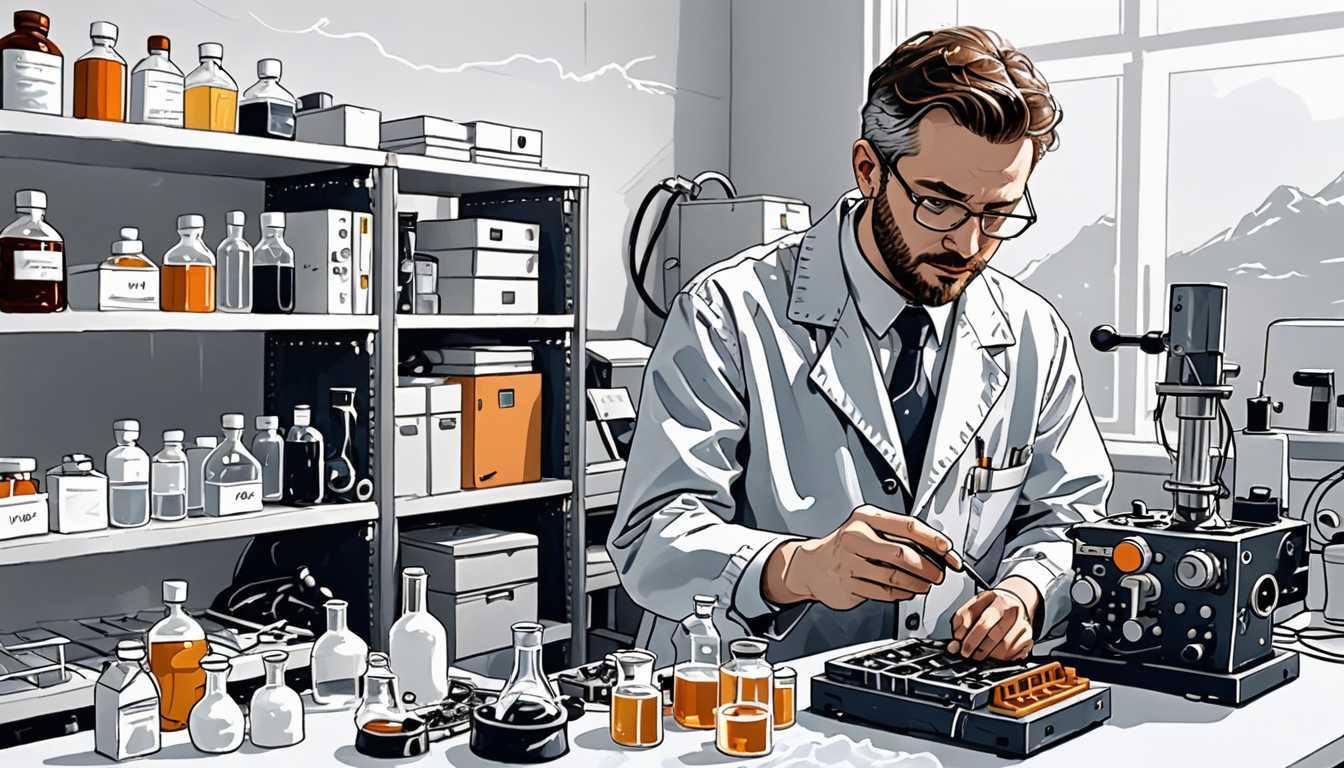Chicken of Tomorrow: A Lab-Crafted Feast
November 2023
MIT Technology Review
Introduction
Imagine biting into chicken that didn’t cluck its way to your plate but was instead crafted in a lab! That’s exactly what happened at Bar Crenn, a fancy San Francisco eatery, where lab-grown chicken made its Michelin-starred debut. This futuristic feast, concocted by Upside Foods, might just be the next big thing in sustainable dining. With a side of intrigue and a sprinkle of science, this article from MIT Technology Review takes us on a culinary adventure where the chicken of tomorrow is served today. Will lab-grown meat be the hero in our climate crisis saga? Forks at the ready!
READ FULL ARTICLEWhy It Matters
Discover how this topic shapes your world and future
Chicken of the Future - A Taste of Tomorrow
Have you ever wondered what the future of food looks like? Imagine sitting in a fancy restaurant and ordering chicken that was grown in a lab, not a farm. This isn't a scene from a sci-fi movie; it's happening today. The concept of lab-grown meat, also known as cultivated meat, is revolutionizing our approach to food production, offering a sustainable and ethical alternative to traditional meat. This innovation could significantly reduce the environmental impact of animal farming, combat climate change, and even address food scarcity issues globally. For you, the future consumers, understanding and engaging with these advancements means contributing to a healthier planet and possibly reshaping dietary habits for generations to come. Imagine the possibilities - a world where your favorite dishes are not only delicious but also kind to the earth. This topic isn't just about what's on your plate; it's about the future of our planet.
Speak like a Scholar
Cultivated Meat
Meat produced by cultivating animal cells in a lab, rather than raising and slaughtering animals. It's like growing a chicken fillet from a cell sample.
Sustainability
The practice of using resources in a way that does not deplete them or cause long-term damage to the environment. Think of it as borrowing the Earth from future generations and returning it in good condition.
Ethical Consumption
Making purchasing decisions that reflect your values and consider the impact on the environment, animals, and people. It's like being a superhero for the planet with your wallet.
Bioreactors
Large machines or containers where biological reactions occur, such as growing meat from cells. Picture a giant yogurt maker, but for growing meat.
Textural Analogues
Foods designed to mimic the texture of another food product, often used in plant-based or cultivated meats to replicate the feel of traditional meat. It's the science of making tofu taste like a steak.
Regenerative Agriculture
Farming practices that restore the health of the ecosystem, improving water retention, soil fertility, and biodiversity. Imagine farming that heals the earth instead of harming it.
Independent Research Ideas
Comparative Study on the Nutritional Value of Cultivated vs. Traditional Meat
Investigate how lab-grown chicken stacks up against farm-raised chicken in terms of vitamins, minerals, and overall health benefits. It's a food face-off for the future.
Environmental Impact Analysis of Cultivated Meat Production
Dive into how growing meat in labs could reduce the carbon footprint, water usage, and land needed compared to conventional animal farming. It's like detective work for the planet.
Consumer Perception and Adaptation to Cultivated Meat
Explore how people feel about eating meat grown in a lab and what factors might influence their willingness to switch. It's understanding the recipe for changing minds.
The Role of Biotechnology in Food Innovation
Examine how advances in biotech are paving the way for new food products, like cultivated meat, and what this means for the future of food security. It's like peeking into food's high-tech future.
Ethical Considerations of Cultivated Meat
Delve into the moral implications of lab-grown meat, including animal welfare, socioeconomic impacts, and potential health concerns. It's a quest for the conscience of consumption.
Related Articles

Meet the Digital Forest Ranger!
October 2024
MIT Technology Review

Land: The Key to Climate Success
November 2024
MIT News

Timber Talks: Rethinking Sustainability Today!
July 2024
University of Bristol

Vibrations Unveil Hidden Soil Secrets!
August 2024
Caltech - Research News

Making It Snow: The Future of Weather
August 2024
MIT Technology Review